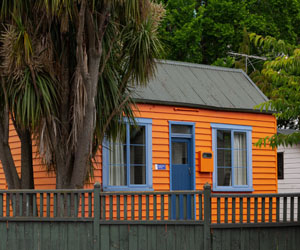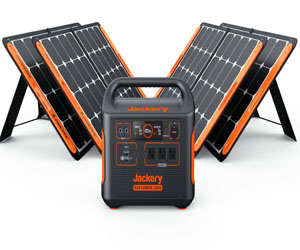


Paving The Way For A Smarter World

In an era driven by innovation and technological advancement, intelligent solutions have emerged as a powerful force transforming the way we live, work, and interact with the world around us. These solutions encompass a wide range of technologies and approaches that leverage data, automation, and artificial intelligence to make processes more efficient, effective, and responsive. In this article, we explore the world of intelligent solutions and their impact on various aspects of our lives.
Enhancing Everyday Life
Intelligent solutions are all around us, making our daily routines more convenient and enjoyable. Take, for example, the personal virtual assistants like Siri and Alexa, which have become integral parts of many households. These AI-driven solutions can answer questions, provide weather updates, control smart home devices, and even play your favorite music with a simple voice command. They are a prime example of how intelligent solutions have become an indispensable part of our lives, adding a layer of convenience and personalization to our everyday experiences.
Efficiency In Business
In the corporate world, intelligent solutions are optimizing business operations, boosting productivity, and improving decision-making processes. Data analytics, for instance, helps companies gain insights into customer behavior and market trends. This, in turn, allows for more informed and targeted marketing strategies, ultimately leading to better outcomes and growth. Additionally, the automation of repetitive tasks through intelligent solutions can free up employees to focus on more creative and strategic aspects of their work.
Healthcare And Well-Being
The healthcare industry is witnessing a revolution through the application of intelligent solutions. Telemedicine, for instance, allows patients to receive medical consultations from the comfort of their homes. Wearable health monitoring devices provide real-time data to both patients and healthcare professionals, helping to manage chronic conditions and improve overall health. Artificial intelligence is also aiding in the analysis of medical images, enabling more accurate diagnoses and treatment planning.
Transportation And Mobility
Intelligent solutions have the potential to redefine the way we move from one place to another. Autonomous vehicles are a prominent example. These vehicles use sensors, cameras, and AI algorithms to navigate roads and make split-second decisions, aiming to increase safety and efficiency in transportation. Additionally, smart transportation systems can help reduce traffic congestion and energy consumption, making our daily commutes more sustainable.
Environmental Sustainability
The quest for a more sustainable future is heavily reliant on intelligent solutions. Smart grids, for instance, enable better management of energy distribution, reducing waste and carbon emissions. IoT (Internet of Things) sensors are used to monitor air quality, water quality, and energy consumption, providing essential data for environmental management and conservation efforts. These solutions play a crucial role in mitigating the impact of climate change and promoting a greener world.
The Future Of Intelligent Solutions
As technology continues to advance, the potential for intelligent solutions is virtually limitless. The integration of data-driven decision-making and automation into various aspects of our lives is reshaping our world. Whether it's in our homes, businesses, healthcare, transportation, or environmental initiatives, intelligent solutions are a driving force behind progress and a promise of a brighter, smarter future.
Intelligent solutions are not just a trend; they are a fundamental shift in the way we approach problems and opportunities. They offer us a pathway to increased efficiency, improved quality of life, and a more sustainable future. Embracing these solutions means embracing progress, innovation, and the ever-evolving landscape of our interconnected world. As we move forward, the integration of intelligent solutions will undoubtedly continue to shape the way we live and interact with our environment, paving the way for a smarter, more efficient, and more responsive world.
Powering Your Home Sustainably
 Eco-Friendly Energy
Eco-Friendly Energy
One of the primary benefits of residential solar solutions is their eco-friendliness. Solar panels harness the energy of the sun, a renewable resource, and convert it into electricity. Unlike traditional fossil fuels, solar power does not produce harmful emissions, making it a clean and green energy source. By switching to solar energy, homeowners significantly reduce their carbon footprint and contribute to a healthier planet.
Lower Energy Bills
Solar panels not only benefit the environment but also your wallet. Once you've invested in a solar panel system for your home, you'll enjoy reduced energy bills. Solar power systems can generate a substantial portion of your electricity needs, which means you'll buy less power from the grid. In some cases, excess energy generated by your solar panels can even be sold back to the grid, potentially turning your electricity meter in your favor.
A Fundamental Right And Social Imperative
 One of the critical challenges in addressing affordable housing is the ever-increasing demand. As more people move to urban centers in search of better economic opportunities, housing markets become strained. Limited supply and increasing demand often result in skyrocketing housing prices, pushing the cost of living beyond the means of many.
One of the critical challenges in addressing affordable housing is the ever-increasing demand. As more people move to urban centers in search of better economic opportunities, housing markets become strained. Limited supply and increasing demand often result in skyrocketing housing prices, pushing the cost of living beyond the means of many.
The consequences of unaffordable housing are far-reaching. Families are forced to live in overcrowded and substandard conditions, leading to health issues and reduced quality of life. Homelessness becomes a tragic reality for some, further exacerbating social problems. Moreover, the lack of affordable housing can perpetuate cycles of poverty, as families are left with limited resources for education, healthcare, and other essential services.
Affordable housing solutions are not only vital for individuals and families; they also have broader social and economic implications.






Illuminating The Future Of Energy
 At the heart of solar technology is the photovoltaic (PV) cell, which converts sunlight into electricity. This process is accomplished through a series of interconnected steps:
At the heart of solar technology is the photovoltaic (PV) cell, which converts sunlight into electricity. This process is accomplished through a series of interconnected steps:
Photon Absorption: When sunlight hits the PV cell, it excites electrons in the semiconductor material. These semiconductors are typically made of silicon.
Electron Movement: The excited electrons move through the semiconductor material, creating an electric current. This movement of electrons is what we harness as electricity.
Inverter Conversion: The electric current generated by the PV cells is direct current (DC). However, most of our electrical devices and appliances operate on alternating current (AC). An inverter converts the DC to AC, making it compatible with standard household electricity.
Energy Storage (Optional): Excess energy generated during the day can be stored in batteries for later use, especially during the night or on cloudy days.
Innovations In Solar Technology
Thin-Film Solar Panels: Traditional solar panels are made of silicon and are relatively thick. Thin-film solar panels use significantly less material and are lightweight, making them suitable for various applications, including flexible solar panels for curved surfaces or portable solar chargers.
The Liberating Power Of Minimalism
 The modern consumerist culture often bombards us with messages that more is better, and that happiness can be found through the acquisition of material possessions. However, this mindset can lead to cluttered lives, financial strain, and a sense of emptiness. "Freedom from excess" challenges this narrative, offering a different perspective on what constitutes a fulfilling life.
The modern consumerist culture often bombards us with messages that more is better, and that happiness can be found through the acquisition of material possessions. However, this mindset can lead to cluttered lives, financial strain, and a sense of emptiness. "Freedom from excess" challenges this narrative, offering a different perspective on what constitutes a fulfilling life.
Here are some key aspects of this philosophy:
Minimalist Living: At its core, "freedom from excess" aligns with minimalist living. It encourages individuals to declutter their living spaces, reduce their material possessions, and focus on the essentials that truly add value to their lives. Minimalist living emphasizes quality over quantity and promotes the idea that less can be more.
Financial Freedom: A focus on "freedom from excess" includes mindful spending and the avoidance of unnecessary debt. By living within one's means and reducing unnecessary expenses, individuals can experience financial freedom, reduce stress, and achieve greater control over their financial future.
Environmental Responsibility: Excessive consumption has a substantial impact on the environment. Minimalist living reduces waste, conserves resources, and lessens the carbon footprint. It encourages eco-friendly practices such as reusing, recycling, and reducing energy and water consumption.
The Art Of Minimalist Living
 Declutter And Downsize
Declutter And Downsize
The first step in simplifying your space is to declutter and downsize. Take a critical look at your belongings and ask yourself what truly adds value to your life. Consider the Marie Kondo approach of keeping only those items that "spark joy." Donate or sell what you no longer need, and let go of the excess.
Create Functional Spaces
A simplified space is a functional one. Ensure that every item has its place and purpose. This not only makes it easier to find what you need but also reduces visual clutter. Design your spaces with intention, and be mindful of the flow and purpose of each area.
Choose Quality Over Quantity
In the pursuit of simplification, focus on quality over quantity. Invest in well-made, durable items that are built to last. This not only reduces the need for constant replacements but also brings a sense of craftsmanship and beauty to your space.
Declutter Digitally
In our digital age, it's not just physical clutter that can overwhelm us; digital clutter can be equally burdensome. Simplify your digital life by organizing files, emails, and apps. Unsubscribe from unnecessary emails and unfollow social media accounts that don't bring value to your life.
Reduce Decor
In a simplified space, less is often more when it comes to decor. Choose a few meaningful pieces that resonate with you, rather than overwhelming your space with decorations. This approach can create a serene atmosphere and highlight the items that truly matter.
Simplify Your Wardrobe
A simplified wardrobe can be liberating. Consider creating a capsule wardrobe, a collection of versatile pieces that can be mixed and matched. Fewer clothes mean less decision fatigue and a streamlined morning routine.
The Power Of Gardening Communities
 4. Collaboration: In some gardening communities, members collaborate on group projects or communal gardens. These shared spaces allow for the cultivation of larger and more diverse gardens than what individual gardeners might achieve alone. Collaborative efforts can result in flourishing, bountiful gardens that benefit everyone involved.
4. Collaboration: In some gardening communities, members collaborate on group projects or communal gardens. These shared spaces allow for the cultivation of larger and more diverse gardens than what individual gardeners might achieve alone. Collaborative efforts can result in flourishing, bountiful gardens that benefit everyone involved.
5. Social Interaction: Gardening is a solitary activity for many, but being part of a gardening community can alleviate the isolation. Whether you're participating in a local club's meetings or engaging in online discussions, these interactions offer the chance to connect with like-minded individuals who share your passion for plants and the outdoors.
6. Garden Tours And Events: Gardening communities often organize garden tours and events where members can visit one another's gardens, exchange ideas, and celebrate each other's successes. These events can be a source of inspiration and an opportunity to appreciate the beauty of different gardening styles.
7. Mentorship: Experienced gardeners within a community often take on mentorship roles, guiding newcomers in the art and science of gardening. Mentorship fosters a sense of continuity and tradition, passing down knowledge from one generation of gardeners to the next.